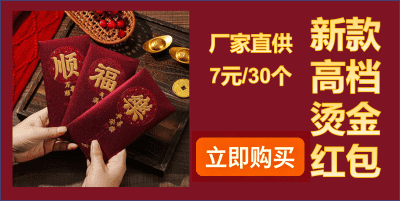春节亲戚如何教育孩子英语

下面围绕“春节亲戚如何教育孩子英语”主题解决网友的困惑
英语翻译欢庆春节是中国的传统习俗
The traditional Chinese custom to celebrate Spring Festival is deeply rooted in our culture. With a history of thousands of years, this annual festival brings families together in joyous celebration. From elaborate temple fairs to dazzling fireworks displays, the Spring Festival showcases the richness of Chinese traditions.
During Spring Festival, children receive red envelopes filled with money as a symbol of good luck and blessings. This tradition not only fosters a sense of happiness and excitement, but also serves as a valuable opportunity to educate children about financial literacy and the value of money. Parents can take this opportunity to teach their children the importance of saving, budgeting, and making wise financial decisions.
如何教育孩子学习英语?
When it comes to teaching children English, creating an immersive environment is crucial. Studies have shown that children learn languages most effectively when they are exposed to them in everyday life. Therefore, parents can incorporate English into their daily routines and activities to help their children learn English naturally and effortlessly.
One effective way to create an English environment is through English-only mealtimes. During family meals, parents can encourage their children to communicate in English and make it a fun and interactive experience. This can be achieved by using English conversation starters, playing word games, or even watching English cartoons together.
Another important aspect of language learning is exposure to authentic materials. Parents can provide age-appropriate English books, magazines, and movies for their children to explore. This not only enhances their reading and listening skills, but also introduces them to different cultures and perspectives.
英语翻译怎样过春节春节是我们中国的传统节日
The Spring Festival, also known as Chinese New Year, is an integral part of Chinese culture. It is a time for families to come together, celebrate, and honor their ancestors. The festival typically lasts for 15 days, filled with a variety of traditions and customs.
One of the most important customs during Spring Festival is the reunion dinner. Families gather around a table filled with delicious dishes that symbolize good luck and prosperity. This feast not only satisfies our taste buds but also nourishes the strong bond between family members.
Another significant tradition is the giving of red envelopes, or \"hongbao,\" which contain money. This gesture is believed to bring good fortune and blessings for the upcoming year. It is a way for elders to show their love and care for the younger generation, while also teaching children about the importance of gratitude and respect.
春节习俗英文简介,加上中文_作业帮
The Spring Festival, also known as Chinese New Year, is the most important and widely celebrated festival in China. The festival marks the beginning of the lunar calendar and lasts for 15 days. It is a time for family reunions, delicious feasts, and vibrant cultural traditions.
春节是中国最重要且广泛庆祝的节日,它标志着农历的开始,持续15天。这是一个家庭团聚、美食盛宴和充满活力的文化传统的时刻。
One of the most iconic customs during the Spring Festival is the dragon and lion dances. These traditional performances are believed to bring luck and scare away evil spirits. The vibrant colors, thunderous drums, and energetic movements of the dancers create a festive atmosphere that fills the streets and squares.
在春节期间最具代表性的习俗之一是舞龙和舞狮。这些传统表演被认为能带来好运,驱散邪恶的灵气。舞者们鲜艳的色彩、震撼人心的鼓声和充满活力的舞姿营造出了一个充满喜庆气氛的街头广场。
Another popular tradition is the exchange of red envelopes. This is a way to share blessings and good wishes with family and friends. Children eagerly await these red envelopes, as they contain money and symbolize good luck. The act of giving and receiving red envelopes strengthens the bond among relatives and friends and spreads joy and prosperity.
另一个流行的传统是互赠红包。这是与家人和朋友分享祝福和美好祝愿的一种方式。孩子们都迫不及待地想要收到这些红包,因为它们里面装着压岁钱,象征着好运。给予和接受红包的行为加强了亲友之间的纽带,传递了喜悦和繁荣。
有关春节的习俗,英语的!_作业帮
As the most important festival in China, the Spring Festival is rich in customs and traditions that have been passed down through generations. These customs not only reflect the deep-rooted values and beliefs of the Chinese people but also create a sense of unity and joy during this festive season.
One of the most significant customs is the hanging of red lanterns and couplets. Red symbolizes good luck and happiness in Chinese culture, and these decorations are believed to bring blessings and ward off evil spirits. Streets, houses, and shops are adorned with vibrant red lanterns and poetic couplets, creating a festive and lively atmosphere.
Another common practice is the setting off of fireworks and firecrackers. The loud explosions are thought to scare away evil spirits and bring good luck for the coming year. The colorful fireworks light up the night sky, adding excitement and beauty to the celebrations.
During the Spring Festival, families also pay visits to their relatives and friends. This is known as \"bai nian\" or \"paying respects to the elders.\" It is a way to show filial piety, strengthen family bonds, and exchange good wishes for the new year. These visits often involve exchanging gifts and enjoying delicious meals together.
作为中国最重要的节日,春节拥有丰富的习俗和传统代代相传。这些习俗不仅反映了中国人民根深蒂固的价值观和信仰,也在这个喜庆的季节中创造了团结和快乐的氛围。
其中最重要的习俗之一是挂红灯笼和对联。红色在中国文化中象征着好运和幸福,而这些装饰品被认为能带来祝福并驱逐邪恶的灵气。街道、房屋和商店都装饰着鲜艳的红色灯笼和诗意的对联,营造出喜庆而热闹的氛围。
另一种常见的习俗是放烟花和鞭炮。巨大的爆炸声被认为能吓走邪灵,为新年带来好运。色彩斑斓的烟花点亮了夜空,为庆祝活动增添了刺激和美丽。
春节期间,家庭也会拜访亲朋好友。这被称为“拜年”,也是对长辈的尊敬之意。这是表达孝道、加强家庭纽带和交换新年祝福的方式。这些拜访通常涉及互赠礼物和共享美食。



